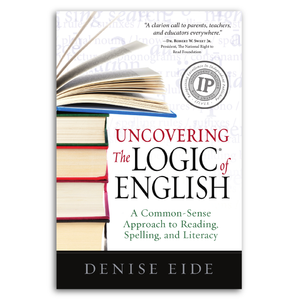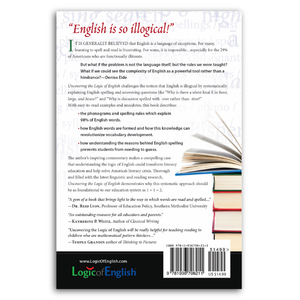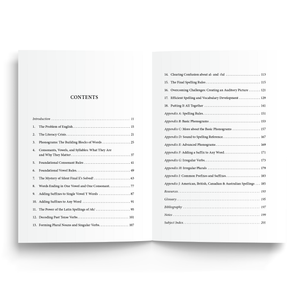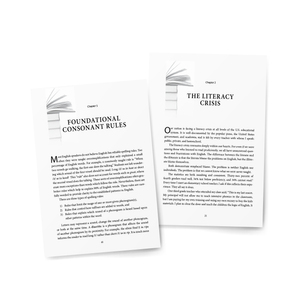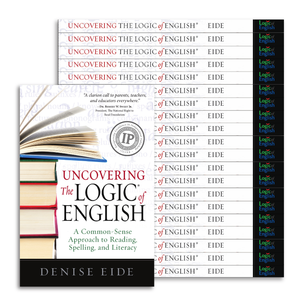In Sold a Story, Emily Hanford describes how teachers and reading experts “explained away the evidence” for how kids actually learn to read.
Why did they do that? Why did so many people who all wanted the same outcome-children who love to read-think that guessing from clues was better than sounding out words?
Throughout Sold a Story, educators express that sounding out words and learning phonics are not fun. They are “old school.”
In Episode 6, when Emily Hanford asked Lucy Calkins if she was aware of the research, Lucy Calkins responded,
“I don't think that there were classrooms that were doing classroom-based methods that were exciting, and poignant and beautiful, and, you know, getting kids on fire as readers and writers…”
This statement gets at one of the reasons I founded Logic of English®. I want kids to love reading. I even have a presentation called “Getting Kids Fired Up About Words!”
The Best Literacy Education Empowers Children
The best literacy education empowers children with the information needed to decode words and presents lessons in fun and engaging ways. Which is why, with great reading curricula, students practice the letter-sound correspondences with fun games that will leave them begging to play more! They discover new spelling rules through activities designed to develop their critical thinking skills. The daily routine of spelling analysis facilitates the orthographic mapping of words and helps students develop the skills to analyze any word.
Great reading instruction doesn't stop there though; as students are developing their skills they need access to decodable readers with engaging storylines and a wide range of nonfiction topics. Well-written, decodable books not only build their skills and confidence, but also help students fall in love with reading.
Students need chances to let their imaginations flow and use words to create mind maps, comic strips, travel brochures and stories. Kids who learn through engaging instruction love learning and get on fire about reading and writing!
But there is another piece to the puzzle, one that is not described in Sold a Story.
When a student misreads a word, many parents and teachers say, “That’s an exception; it’s a sight word.” So many teachers supplement sounding out words with cueing strategies to fill in the gaps.
- Look at the first and last letter.
- Look at the picture.
- What is the context?
People Explain Away the Research Because…
They were never taught the rules needed to decode every word. As a result, one first grade teacher said to me, “I spend the first half of the year teaching phonics and the second half of the year unteaching phonics to read all the exceptions.”
What if that teacher had known the rules that explain all those "exceptions"?
This brings us to the heart of why I founded Logic of English. When my sons struggled with reading, I discovered there were explanations for how to decode words such as: have, is, was and the. These words are not exceptions. In fact, the phonograms and spelling rules that explain these words are needed to decode hundreds of thousands of words. I wanted all parents and teachers to have access to the knowledge that transformed my sons from struggling readers into students who love reading and learning.
Listening to Sold a Story, I have never been more hopeful; hopeful about our mission to equip every teacher and parent with this information; hopeful that we can move from talking about the research to implementing the research; hopeful that we can provide “exciting, poignant and beautiful” instruction that empowers students with the skills to decode and gets teachers and students fired up about reading. I believe that together we can stop explaining away the evidence and use it to transform education.





